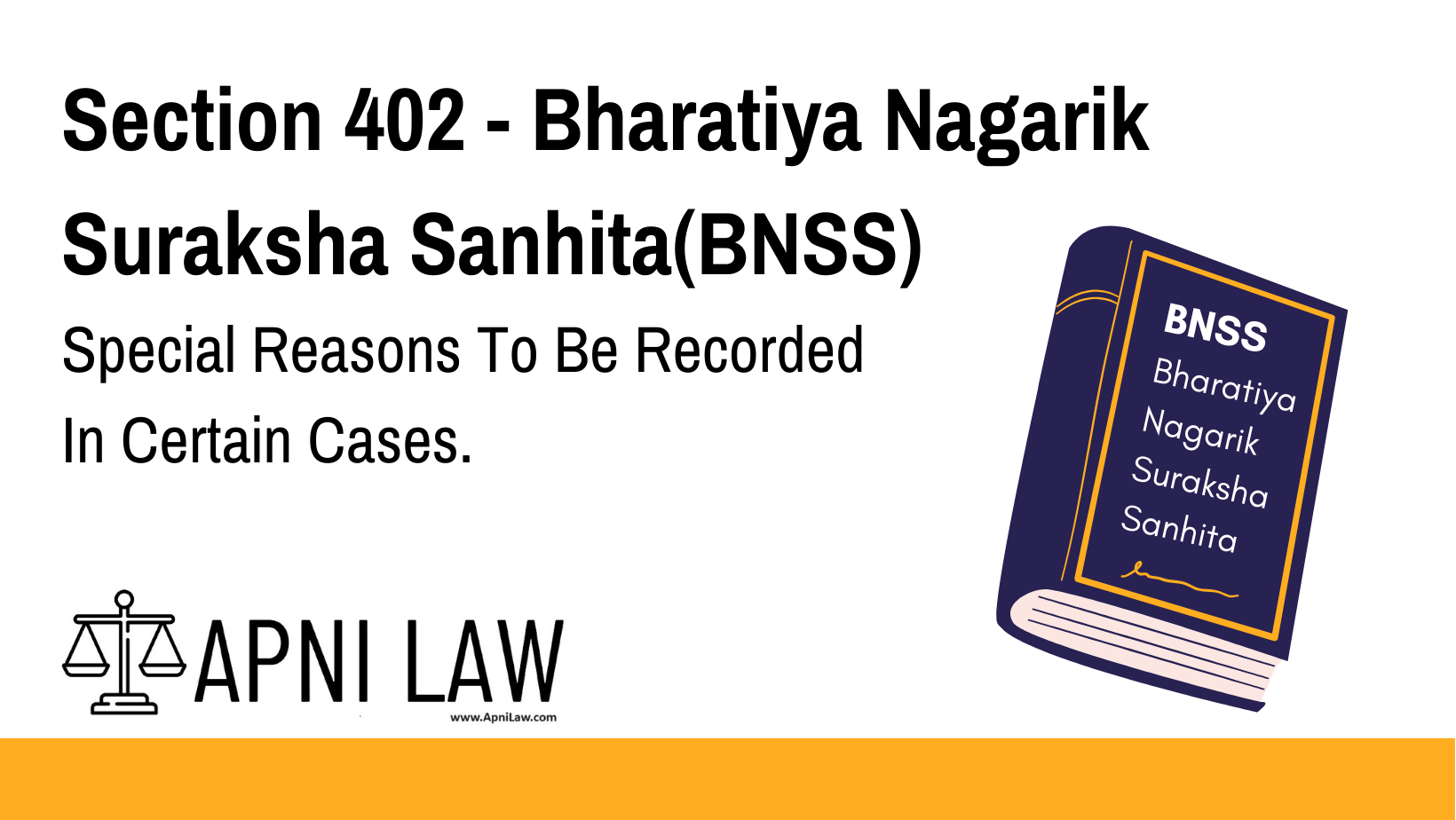Code:
Section 402 BNSS
Where in any case the Court could have dealt with,—
(a) an accused person under Section 401 or under the provisions of the Probation of Offenders Act, 1958 (20 of 1958); or
(b) a youthful offender under the Juvenile Justice (Care and Protection of Children) Act, 2015 (2 of 2016) or any other law for the time being in force for the treatment, training, or rehabilitation of youthful offenders,
but has not done so, it shall record in its judgment the special reasons for not having done so.
Explanation of Section 402 BNSS
Section 402 BNSS mandates that if a Court chooses not to extend probation or rehabilitation provisions available under certain laws, it must explicitly record the reasons for its decision. This ensures transparency and accountability in judicial reasoning.
Key Provisions:
- Alternative Sentencing Consideration: Courts must first assess whether the accused qualifies for leniency under Section 401 BNSS or the Probation of Offenders Act, 1958.
- Juvenile Offenders: If the accused is a minor, the Court should evaluate rehabilitation options under the Juvenile Justice Act, 2015.
- Mandatory Recording of Reasons: If these alternatives are not applied, the judgment must state the specific reasons why the Court decided otherwise.
Illustration
Example 1: Denial of Probation
A first-time offender convicted of theft under Section 325 BNSS applies for probation. The Court finds that the offender has a history of unreported offenses and decides against granting probation. It must explicitly record these findings in the judgment.
Example 2: Juvenile Sentenced to Prison
A 17-year-old is convicted of grievous hurt under Section 104 BNSS. The Court decides not to refer the accused for juvenile rehabilitation due to the severity of the offense. The judgment must include the justification for this decision.
Common Questions and Answers
1. Why is it necessary to record special reasons under Section 402 BNSS?
Recording special reasons ensures judicial accountability and helps prevent arbitrary decisions. It also provides clarity for appellate courts.
2. What happens if the Court does not record reasons?
Failure to record reasons may weaken the judgment’s credibility and provide grounds for an appeal.
3. Can a decision under Section 402 BNSS be challenged?
Yes, if the reasons provided are insufficient or unjustified, the decision can be challenged in a higher court.
4. Does Section 402 BNSS apply to all offenses?
No, it applies specifically to cases where probation or juvenile rehabilitation could have been granted but was denied.
5. Is there a similar requirement in other laws?
Yes, the Criminal Procedure Code (CrPC) also mandates recording reasons in specific cases, ensuring transparency in judicial decisions.
Conclusion
Section 402 BNSS ensures that courts provide a reasoned basis for denying alternative sentencing options such as probation or juvenile rehabilitation. This provision upholds fairness and allows for appellate review, ensuring justice is served appropriately.
For expert legal insights, visit ApniLaw today! 🚀








